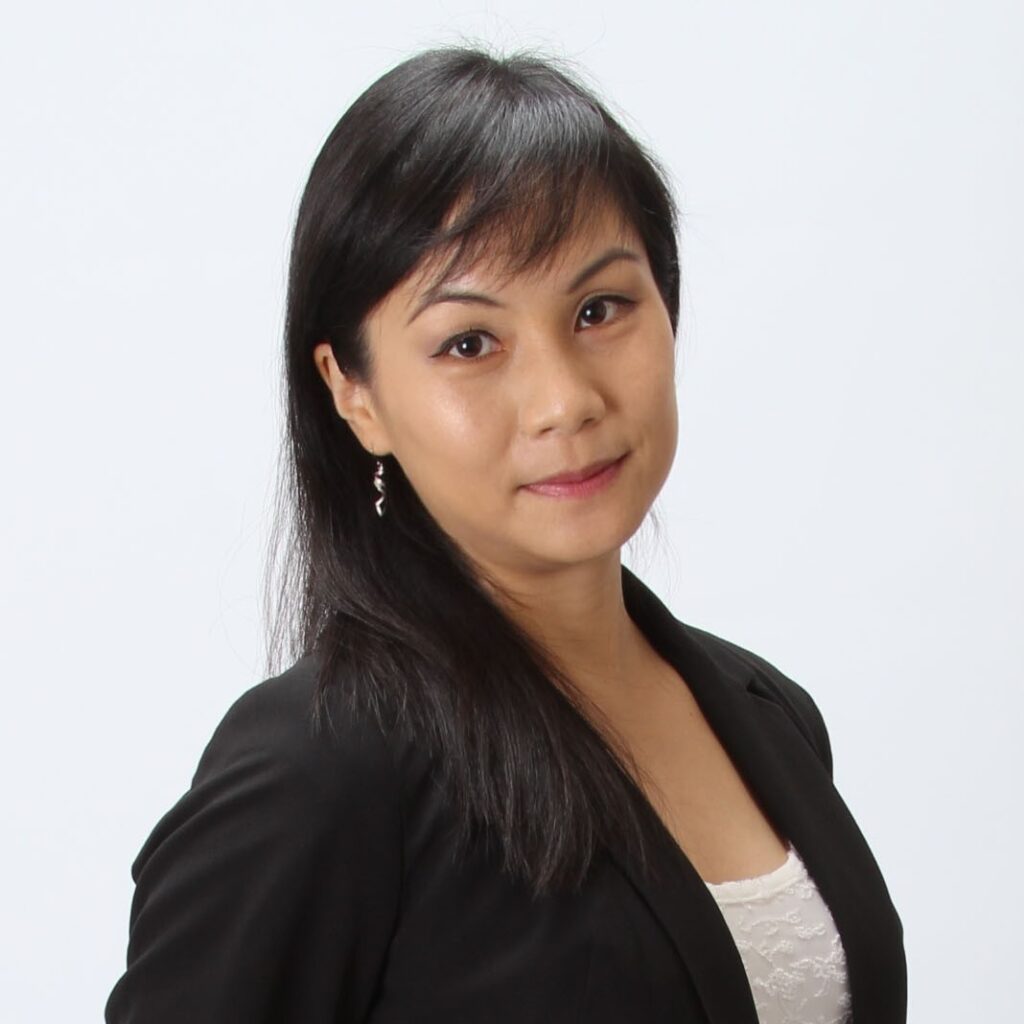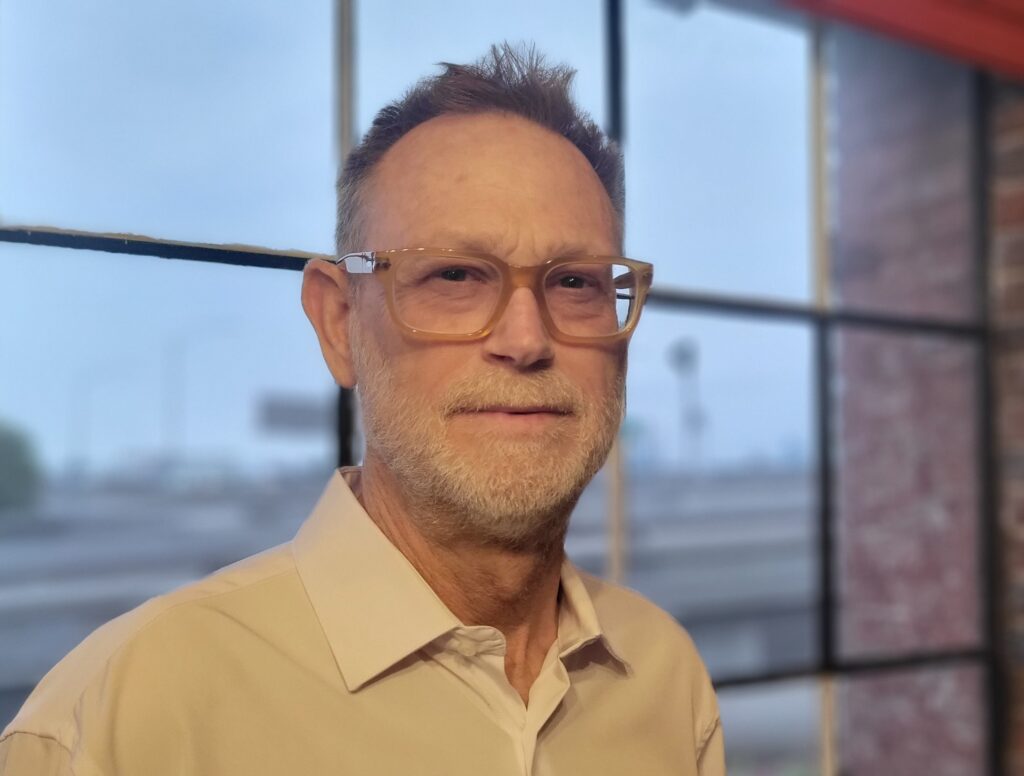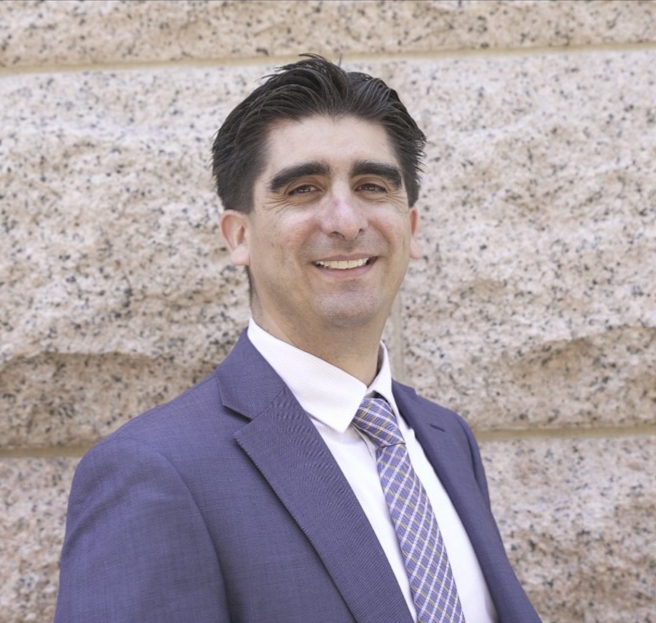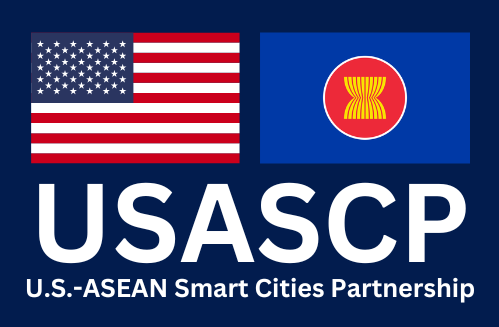The U.S.-Singapore Third Country Training Program (TCTP) will host a Smart Cities & AI: Technologies, Policies, and Public Service Efficiencies workshop with in-person training sessions from February 24 to 28, 2025, in Singapore. The course aims to analyze AI in public policy and development, and data privacy and security considerations. It will also include a focus on the application of AI into the urban built environment, specifically on data centers as growing typology, to provide public authorities and officials an understanding of the use of AI to advance sustainability objectives.
Program Agenda
Overview
Day 1: February 24
Day 2: February 25
Day 3: February 26
Day 4: February 27
Day 5: February 28
Featured Lecturers
Eve Lin McNaughton, U.S. Green Building Council

Director of Innovation & Research, U.S. Green Building Council
Eve S. Lin McNaughton is the Director of Innovation & Research at the U.S. Green Building Council, where she draws on over 20 years of experience in the architecture, engineering, construction, and operations (AECO) industry to drive innovation and sustainability in the built environment. With a strong foundation in advanced technologies, Eve specializes in integrating building information modeling (BIM), geographic information systems (GIS), artificial intelligence (AI), and data science to address complex challenges in urban planning, smart city development, and sustainable design.
In her role at USGBC, Eve spearheads transformative research initiatives focused on urban resilience, decarbonization, and AI-driven innovations for sustainable built environment strategies. She also explores applications of emerging technologies to enhance organizational process efficiency. Committed to shaping the future of the AECO industry, Eve develops forward-thinking research agendas, conducts in-depth performance analyses, and creates thought leadership content on leveraging technology to advance urban sustainability and human-environment interaction. Her work actively champions the adoption of AI, digital twin solutions, and advanced data analytics to support sustainable outcomes, including energy efficiency, health and well-being, resilience, and equity in the built environment.
Eve’s diverse portfolio spans BIM-GIS integration for facility management, multi-objective optimization in design processes, energy simulation for sustainable operations, and data foundations for scalable smart city technologies, operational management, and organizational efficiency. She has shared her expertise through international conference presentations, peer-reviewed publications, and guest lectures at leading institutions such as the University of Southern California and National Taiwan University.
Before joining USGBC, Eve held leadership roles as a LEED Consultant, BIM Consultant, Research and Development Associate, EAM Strategy Consultant, and Digital Transformation & Sustainability Lead. Her dedication to zero-energy building design and AI-enabled solutions underscores her passion for utilizing technology to create responsive, resilient, and sustainable environments. Eve holds advanced degrees in Architecture, Building Science, and Civil Engineering, along with professional credentials in Geographic Information Science & Technology and Data Science.
Through the integration of technological innovation and sustainable practices, Eve continues to transform the built environment, ensuring it meets the challenges of an ever-evolving, technology-driven world.
Tom Sanchez, Texas A&M University

Dr. Thomas W. Sanchez is a professor of Landscape Architecture and Urban Planning at Texas A&M University, with a specialization in smart cities and the application of artificial intelligence (AI) in urban planning. His research focuses on how AI and data-driven technologies can improve urban systems, addressing ethical, equitable, and sustainable development challenges.
Dr. Sanchez has contributed extensively to the global conversation on smart cities and AI. He has delivered invited talks and presented his research in countries including the United States, Canada, Egypt, China, South Korea, Ireland, Finland, New Zealand, and Belgium. His presentations have addressed topics such as algorithmic urban planning, AI in public participation, and the future of AI-driven urban decision-making at international forums like the Smart Cities and AI Innovations Symposium and the ISOCARP World Planning Congress.
Dr. Sanchez’s work includes studies on the ethical implications of AI in planning, AI’s role in public feedback analysis, and data-driven approaches for smart city initiatives. His most recent books include Networks in the Knowledge Economy and Planning Knowledge and Research. His forthcoming book, AI for Urban Planning will be published by Routledge in 2025. Sanchez Chairs the American Planning Association (APA) Education Committee, and is a member of APA’s Artificial Intelligence (AI) Foresight Community.
Carlos Tamayo, Phronimos LLC

Carlos Tamayo is a civil and environmental engineer with over 19 years of experience in smart city planning, climate resilience, and innovative technologies. He holds master’s degrees in Environmental Engineering from Florida International University and Global Smart City Management from Universitat de Barcelona, Spain. He is a certified LEED Accredited Professional and ENV SP, with credentials in data analytics and machine learning from MIT Media Lab.
Carlos has held key leadership roles, including Infrastructure Project Manager at the City of Miami Beach, where he managed hydrogeological programs to address sea level rise, flooding, and storm surge. He developed flood monitoring models, designed hydraulic infrastructure, and secured grants from NOAA, NASA, and NST for climate resilience. He also led a winning proposal for the Bloomberg Challenge, advancing flood resilience planning.
At AECOM, Carlos served as Southeast Region Water Resources and Resilience Lead, guiding climate resilience and infrastructure adaptation projects while integrating technologies like GeoAI and predictive analytics. At RES, he advanced climate resilience, wetland mitigation, and modeling to support ecological and infrastructure sustainability.
As Innovation Manager for the City of Colorado Springs, Carlos led the SmartCOS Program, implementing technologies such as digital twins, predictive analytics, and AI to enhance urban systems and achieve climate goals. His efforts included fostering strategic partnerships to advance smart city and sustainability initiatives.
Currently, as President & CEO of Phronimos LLC, Carlos leads the development of smart city and sustainability solutions across the Americas. His projects include WatQ.AI and HydraSource, initiatives leveraging AI and predictive analytics for water quality monitoring, algae cultivation, and bioenergy production. These efforts aim to address water pollution, support renewable energy generation, and drive sustainable urban development.
Carlos collaborates with federal agencies such as DOE, USDOT, FEMA, NOAA, NIST, and NASA to deliver innovative, data-driven solutions that create equitable and resilient communities.
Helen Santiago Fink, U.S. Department of State
Helen is a climate urbanist and researcher who works at the intersection of the social, natural and physical sciences. Her 25+ years of professional work experience brings multi-disciplinary expertise in sustainable development, climate change mitigation, adaptation and resiliency, urban (systems) planning, energy-efficient buildings, community and economic development. She has worked at the global, national and local scale as technical advisor and programme manager for organizations, including the United States Agency for International Development (USAID), United Nations Environment Programme (UNEP), and the Organization for Security and Cooperation in Europe (OSCE).
Her publications highlight how nature-based solutions can accelerate urban sustainability and climate resiliency and is a strong proponent of the need for people-based solutions to meet climate targets. Her research explores the contextual potential of optimizing urban ecosystem services in spatial integration, governance structures, and technological applications to catalyze biophilia, environmental stewardship and behavior change towards climate action. She is co-founder of Urban Breezes Research Collaborative, focused on urban sustainability and smart cities as well as member of the Urban Climate Change Research Network.
Helen holds a Bachelors of Arts in Economics from Washington University in St. Louis, a Masters of Arts in Urban/Regional Planning from Florida Atlantic University and undertook doctoral work at the (BOKU) University of Natural Resources and Applied Life Sciences in Vienna, Austria focused on eco-cities and climate change.
Helen’s favorite word is “circularity.”
 U.S.-ASEAN Smart Cities Partnership
U.S.-ASEAN Smart Cities Partnership

